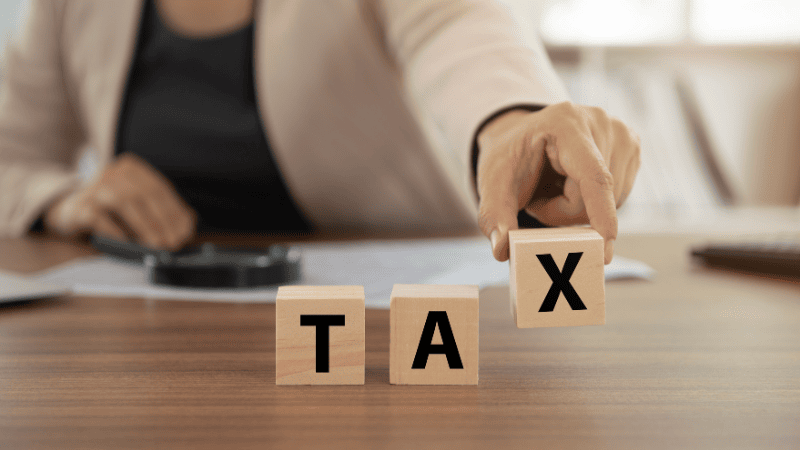If you’re a self-employed real estate investor, you’ve probably run into the same problem:
✅ Strong income
✅ Solid assets
✅ Great credit
❌ But low taxable income on paper
Traditional lenders don’t always understand how entrepreneurs structure their finances. Fortunately, bank statement loans are a flexible alternative that allows you to qualify using real cash flow—not tax returns or W-2s.
In this guide, we’ll break down how bank statement loans work, who they’re for, and how real estate investors can use them to acquire, refinance, or scale their portfolios.
What Is a Bank Statement Loan?
A bank statement loan is a type of non-QM (non-qualified mortgage) that lets you qualify for financing using 12 to 24 months of bank statements instead of traditional income documentation like pay stubs or tax returns.
These loans are designed specifically for:
- Self-employed professionals
- LLC-based investors
- Freelancers, consultants, and 1099 earners
- Real estate entrepreneurs with multiple properties and write-offs
Lenders review deposit activity to determine your income—giving credit to what actually hits your account, not what you write off on your taxes.
How Bank Statement Loans Work
Instead of W-2s or tax forms, you’ll submit:
- 12 or 24 months of personal or business bank statements
- Profit & loss statement (sometimes required)
- Business license or CPA letter
- Credit report
- Asset and reserve documentation
Lenders will analyze the average monthly deposits to determine your income.
Example:
If your business checking account shows average monthly deposits of $18,000 and your lender uses 50% of gross revenue:
- Qualifying income = $9,000/month
This figure is then used to calculate your debt-to-income ratio or coverage ability for the loan.
Key Benefits of Bank Statement Loans for Investors
| Advantage | Description |
| ✅ No tax returns required | Qualify using deposits, not adjusted gross income |
| ✅ Ideal for self-employed | Perfect for LLCs, 1099s, and real estate business owners |
| ✅ Higher qualifying income | Don’t get penalized for write-offs or depreciation |
| ✅ Property types flexible | SFRs, 2–4 units, condos, and even short-term rentals |
| ✅ Refinance or purchase | Use for new acquisitions, rate-and-term, or cash-out refi |
Bank Statement Loan Terms: What to Expect
| Feature | Typical Range |
| Loan Amount | $150,000 – $5,000,000+ |
| Credit Score | 660+ (700+ preferred) |
| LTV (Loan-to-Value) | Up to 85% (purchase), 75% (cash-out) |
| Loan Term | 30-year fixed, ARM, or IO options |
| Prepayment Penalty | 3–5 years typical |
| Reserve Requirements | 6–12 months of PITIA |
| Entity Ownership | LLC, S-Corp, individual |
📌 Note: Interest rates are slightly higher than conventional, but the tradeoff is flexibility and accessibility.
Who Should Use a Bank Statement Loan?
✅ Best Fit:
- You’re self-employed or 1099
- You use tax strategies that reduce AGI
- You have high deposits, low reportable income
- You operate your rentals through an LLC
- You’ve hit the loan count cap with conventional lenders
- You need to close quickly or outside of traditional guidelines
Bank Statement Loan vs. DSCR Loan
Both are non-QM loan types, but they serve different investor needs.
| Feature | Bank Statement Loan | DSCR Loan |
| Income Qualifying | Based on personal/business deposits | Based on rental property cash flow |
| Borrower Profile | Self-employed individuals | Property-focused investors |
| Property Types | Owner-occupied or investment | Investment properties only |
| Ownership Allowed | LLC or personal name | LLC preferred |
| Use Case | Business owners qualifying via income | BRRRR, STRs, or long-term rentals |
✅ Many investors use both depending on the deal structure.
Real-World Example: Investor Uses Bank Statement Loan to Scale
Investor: Nicole is a full-time real estate agent and Airbnb host with $250K in annual deposits—but only $40K in taxable income after write-offs.
- Property price: $425,000
- Down payment: 15%
- Lender uses 50% of deposits as qualifying income = $10,400/month
- Loan approved with no W-2s, no tax returns
- Closed in 21 days using 12-month bank statements
Nicole now uses her business income to qualify for more properties without limits.
Pros and Cons of Bank Statement Loans
✅ Pros:
- Flexible income qualification
- No tax returns or W-2s required
- Works with LLC or self-employed borrowers
- Can be used for both primary and investment properties
- Great for STR and BRRRR operators
❌ Cons:
- Higher interest rates than conventional
- Larger down payments (usually 10–20%)
- More documentation than DSCR loans
- Must show consistent income deposits
Final Thoughts
For self-employed investors, bank statement loans offer a powerful workaround to traditional financing roadblocks. You no longer need to be boxed in by tax write-offs or income verification rules that don’t reflect your true earnings.
Whether you’re buying your next STR, refinancing a high-equity rental, or scaling your portfolio as a business owner, a bank statement loan could be the bridge between your real income—and your next investment.



